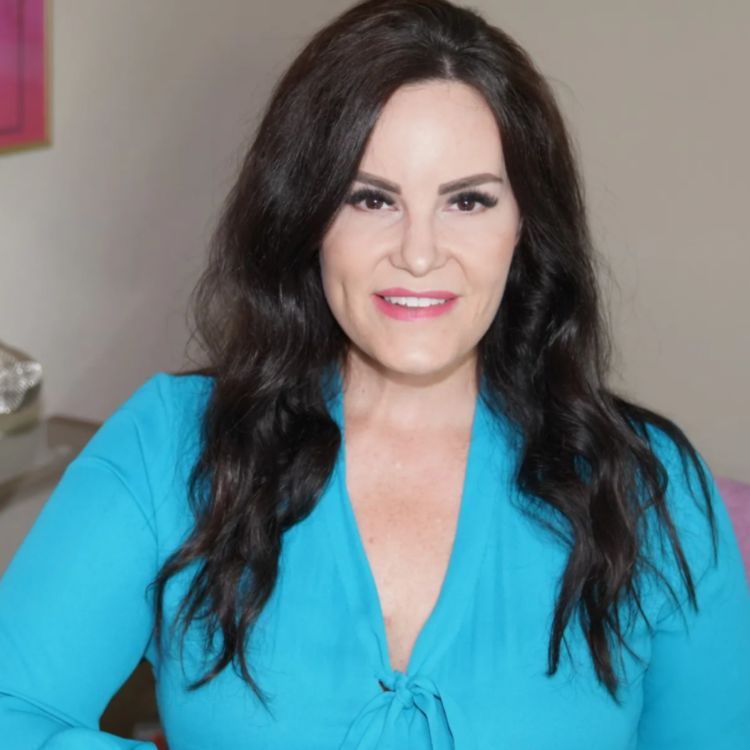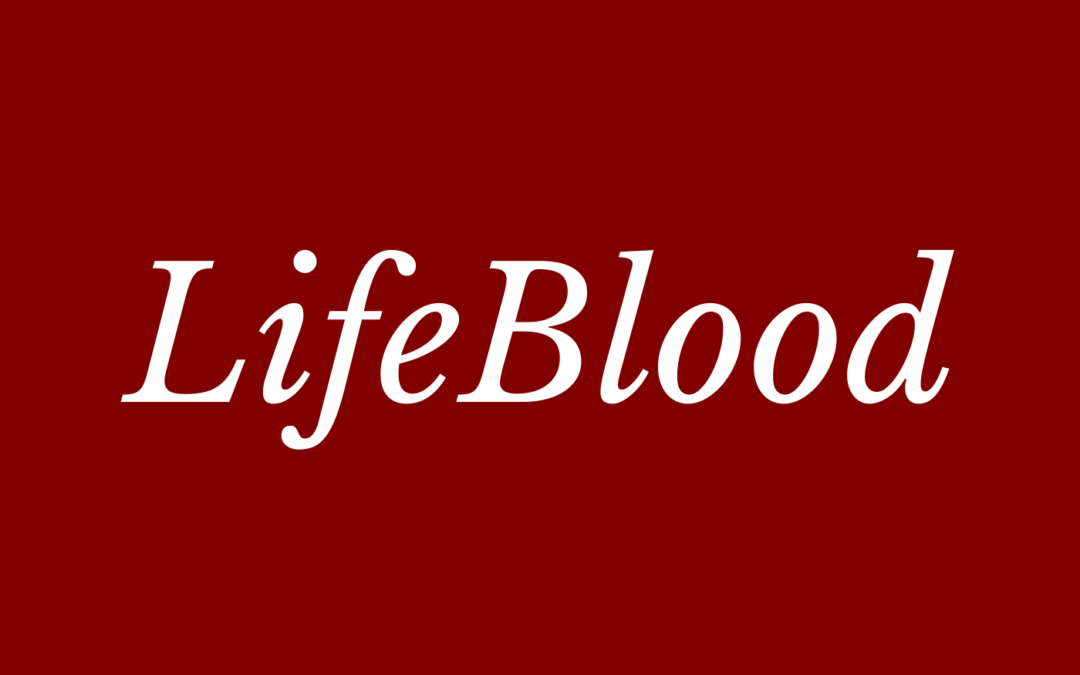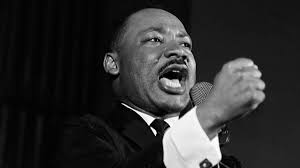Spiritual Intelligence with Amy Lynn Durham
You’ve heard of IQ and EQ, but what about Spiritual Intelligence? Amy Lynn Durham talks about what it is, why it matters, and how to bring it to your company!
Listen to us On
About the Episode
LifeBlood: We talked about spiritual intelligence, how it’s complimentary to EQ and IQ, the benefits it can bring to an organziations, how to successfully implement it, and what the results can be with Amy Lynn Durham, Founder of Create Magic at Work, executive coach, speaker and author.
Listen to learn a framework for thinking about your place in the universe!
You can learn more about Amy at CreateMagicAtWork.net, Facebook, Twitter, Instagram, YouTube and LinkedIn.
Thanks, as always for listening! If you got some value and enjoyed the show, please leave us a review wherever you listen and subscribe as well.
You can learn more about us at LifeBlood.Live, Twitter, LinkedIn, Instagram, YouTube and Facebook or you’d like to be a guest on the show, contact us at [email protected].

George Grombacher
Lifeblood Host

Amy Lynn Durham
Guest
Episode Transcript
george grombacher 0:00
Come on let this is George G. And the time is right. Welcome. Today’s guest is strong and powerful Amy Lynn Durham. Amy, are you ready to do this?
Amy Lynn Durham 0:20
I’m ready. All right, let’s let’s be here.
george grombacher 0:23
Let’s go. Amy is the founder of create magic at work. She’s an executive coach. She’s an author, a speaker, her clients call her the corporate mystic, again, excited to have you on. Amy, tell us a little bit about your personal life some more about your work and why you do what you do.
Amy Lynn Durham 0:43
Yeah, so talking about my personal life, it’s so different than it used to be in the past. I’m a former corporate executive that left the corporate world to become an executive coach, and re inject myself back into the workplace to bring heart and human connection to the workplace. So if you would have talked to me, a couple years ago, you would have been speaking with a very different Amy than you’re speaking with today. She was burnt out tired. overworked didn’t really have a personal life. That’s my laugh when you asked me about personal life. Today is very different. I have a much more balanced life. I have healthy relationships with friends, family, as well as coworkers. And in the past, it was just coworkers. So I’m excited. I have a little Cavapoo puppy. His name is Mr. Bingley. And he takes up a lot of my time because he’s full of energy right now. That’s one of my tests of 2021 on being a common healing presence. was getting Mr. meanly Nice. So I don’t know if that fully answered your question, but
george grombacher 2:03
it absolutely does. 100% Mr. Bingley, I’m gonna have to look up also. Mr. Bingley is is what kind of dog
Amy Lynn Durham 2:13
he’s a half King Charles Cavalier have poodle?
george grombacher 2:16
Okay, so how, how big is Mr. Bingley?
Amy Lynn Durham 2:20
He’s about 18 pounds. Okay. Yes. Is on Instagram. Mr. Bailey’s world. Okay.
george grombacher 2:28
Excellent. Well, I will follow up Mr. Bingley, later on, on the gram here. Right. Perfect. So so what what what was the motivator for for breaking free moving away from the corporate world as an executive and and becoming a an executive coach.
Amy Lynn Durham 2:48
I think I hit that point in my life where I was seeking something more. And feeling like I was doing something more aligned with a life purpose. Rather than hitting sales goals, and driving initiatives in that way. And what I was finding towards the end of my, you know, the last year I was at my job, I really made an effort to do these connecting activities with my employees. I wanted to prove that collaboration wins over competition. And that getting each other to see the humanity in each other, actually increases profitability and productivity. And that was sort of my underlying motive for the final year that I was in my job was I wanted to prove that, and I wanted to leave on top because I didn’t want anyone to say, oh, you know, she couldn’t handle it in this environment. But I also wanted to prove that everyone working together in this really positive way, actually works compared to unhealthy competition, and pitting people against each other. So I did all these activities, that sort of skill, build skill, build it, I don’t know if that’s a word and EQ and SQ emotional intelligence and spiritual intelligence with my teams. And they didn’t really know that that’s what they were doing at the time. They just were very touched and connected, and we outperformed our peers quite a bit. And then when I left my job, I put all those activities in my book for others to grab and read and use as a jumping off point for themselves in the workplace.
george grombacher 4:39
Nice. That’s awesome. So what was it? Was it a light bulb that sort of went off that says, You know what, it doesn’t need to be cutthroat or competitive or combative. It seems like we could be working together and having more fun and be more connected and still succeed?
Amy Lynn Durham 5:02
Yeah, I think it was, it was a little bit of two things, or it was a lot of two things. One, it was I was exploring my own spirituality and growth as an individual. And I was experiencing some really, um, I was experiencing some really profound breakthroughs in my life, utilizing these these deep dives into my spirituality. And then so I just started bringing it to work in a way that was digestible for the workplace. And it, then I started seeing how it freed me up as a leader to actually do my job. Because all of these individuals were connecting with each other in a way that was authentic. And so if they needed help on a project, they would call each other, and instead of calling me and so it gave me more time to actually do what I needed to do. In my position. It was really cool. It was really cool experience. Yeah, so yeah. And so I just, you know, I wanted to, to share these tools with more people, and kind of go out on my own, and really create a space that I can utilize my creativity in a much more impactful way. Because I was inundated with Excel spreadsheets, profit and loss statements, and all of those other things. And these creative, emotional intelligence, skill building, all that stuff, it was only a portion of my time that could dedicate to it. And I wanted to dedicate myself full time to it for sure.
george grombacher 6:40
Nice, I appreciate that. So that is, it strikes me that that’s a real art form to be able to bring something into work in a way that’s digestible, as you said, that’s, that’s not easy to do. Did you have a background in that? Or is just just your your intuition?
Amy Lynn Durham 7:02
I didn’t have a background in it. I was my intuition. And it was my confidence. Really, and it was the the courage and the vulnerability, I get asked that a lot, you know, how do leaders start? How do we, how do we do this in the workplace, because really, I think people just don’t know how. And I always say, just start with something small, you know, start a meeting, where everyone just shares a piece of gratitude, and the beginning, for something in their life, personal life work, whatever, you don’t have to do a deep dive into spiritual intelligence to connect each other in the workplace, although I love the deep dive as well. But what my main focus as of late with leaders, that seems to be attracted to me are, this is a really cool thing I want to share are those that are creating an awareness between their ego and their higher self, that place within them that comes from wisdom and compassion and love. And they’re working on really becoming aware of when their ego is running the show, compared to when their higher self was running the show. And then what we do in sessions is we skill build, in practicing, accessing their higher self, keeping their higher self in charge, seeking guidance from their higher self, recognizing when the ego is triggered, putting proper steps into place to calm the ego, and then put the higher self back into the driver’s seat that way. So especially high level leaders, they’re in charge of a lot of individuals. It can put them in the driver’s seat as far as making wise and compassionate decisions, being a wise and effective change agent. And really, the skills that we look to these leaders to have
george grombacher 9:17
what is my higher self,
Amy Lynn Durham 9:20
your higher self is that place within you? That comes from wisdom, compassion, and love. It’s sometimes or sometimes you can think about when you’re in flow, or when you’re in that calm state with your nervous system. Some people like to call it the Green state where it’s like, huh, you’re just going through the green light, you’re just flowing. You’re not triggered you feel great, you’re in the zone. Nothing’s triggered in your brain as far as fight, flight or freeze, and you can have all of these creative possibilities and make all of these decisions from a higher Place of motivation. There, there’s all kinds of I don’t know, I don’t know if you’ve heard if you’ve heard, but there’s so many different intelligences referenced lately. And I’ve heard quite a few scientist in one particular book that I read that I’ve read about spiritual intelligence. It’s from Dana Zohar. She’s a philosopher and a physicist, they break it down to three, which is IQ, EQ, and sq. And IQ is the thinking part, right? The rational part of your brain EQ is the part where you get to feel, and you get to be come aware of your emotions, emotional intelligence, sq could be stated as that creative space that you get to access your Higher Self, the space where you’re in flow, and I started thinking about it. And I thought, no wonder, no wonder people feel like they can’t be their authentic selves at work. Because most of the systems we work in, create an environment that only allows for IQ. So if you, if you look at it in that three part way, we’re actually leaving two parts of ourselves at home, if you will. And imagine if we created workplaces that allowed for all three of those intelligences to thrive. And we start hitting on the SQ people operating from their higher selves, people hitting that creative, innovative space. Wow, what will we have in the workplace inspiration, innovation, creativity, problem solving skills that we’ve never seen before, etc, etc.
george grombacher 11:51
It seems like it seems like it is something that that most every organization would want. But maybe maybe that’s not true.
Amy Lynn Durham 12:07
It sounds amazing, right? And it is. However, the tough part is moving out of that IQ system. Space. The pushback that I hear sometimes is, yeah, that sounds all great, but we don’t have time, we have money we need to make. And we have all of these tasks we need to complete. And we don’t have time to sit around and do this woowoo stuff. I just made that up. But that’s I’m sure that’s what people think often are, what and my answer to that would be, you’re actually losing quite a bit of money in your bottom line. By not tapping into these other two intelligences, the EQ and sq. There’s so much data out there that shows that a highly engaged workplace obviously improves productivity and profitability, but it comes from connecting individuals in the workplace authentically. When you do that, you’ll see up to 41% Lower absenteeism. You’ll see when you have a highly engaged workforce, you’re 21% more profitable. There’s I mean, I could go on and on. But I also to add to your point. There was a Harvard Business Review, research research article called The loneliest workers in America. And it came out pre pandemic, which is super interesting to see if they redo it during, during, you know, lockdown and post pandemic. What it found was that people aren’t feeling burnt out necessarily from workload, but also from loneliness. And that was a huge finding. That equated feelings of loneliness and isolation to the health care costs of smoking 15 cigarettes a day. So as a company, when you ask those questions, look at those costs. Think about your your absenteeism, or think about your disengaged employee. What does that costing you? And the coolest thing about this is it’s a win win. You get to do these connecting activities. You get to know your team a lot better, and it improves your productivity and profitability. Here’s the kicker though. It takes courage to start and to understand why this is so important. And companies really are I mean, they’re starting To put funding into employee well being, and company culture, and doing workshops and trainings that foster this type of environment, those are the ones that are going to move forward with innovation, and be an expert in inspiring place to work.
george grombacher 15:18
Yeah, I think that makes a lot of sense. And I think the reasons that you laid out for why organizations don’t do it make sense. But certainly short sighted. And when you recognize that even pre pandemic, people were feeling disconnected, and too few of us enjoy our work. And this strikes me as a way to help people to feel more connected and to foster a sense of community. I imagine also, it’s it’s having the courage to get started, but then also having a framework or just how do I do this? I imagine that that is also a sticking point. So people need that.
Amy Lynn Durham 15:56
Yeah, absolutely. That’s actually why I wrote my book, create magic at work, it’s small, and it just has some connecting activities in it, I wrote it for the leader in the workplace is just, hey, I want to try this, but I don’t really know where to start. And so they can just flip open and go to an activity and try it out. And then, and then the other framework you talk about just to sort of keep going on that is, of course, I have the SQ experience. And that’s, that’s a deep dive into spiritual intelligence, the 21 skills for the workplace of spiritual intelligence and, and how can we scale build in those areas. That’s the one on one client work I do.
george grombacher 16:39
Nice. It strikes me that this, this must start with with with the leadership, it could start from the bottom up, but it sounds like you really need to get the folks who are running the show to be on board.
Amy Lynn Durham 16:55
Yeah. And that’s so important, because again, back to the data, there’s so much data out there that shows the way that you operate as a leader truly impacts your team, the energy, the attitude that you have. If you’re in a power position, whatever energy you’re holding, let’s say it’s anger, or fear. That is multiplied by 10. To your team. The cool part about it is if you start skill building in operating from this space of accessing your inner wisdom, putting your ego aside. Guess what happens, your team starts operating from that space to by default. And so you create an environment that ripples out this higher vibe energy. And you also create an environment of trust. Because you know, that your team is going to make better decisions. And they won’t need to go to you all the time to touch base. And then you move a lot faster.
george grombacher 18:14
That makes sense. I love it.
Amy Lynn Durham 18:16
Yeah, it’s really cool. I mean, I could get into all the like geeky science of it, but we only have 20 minutes. So I hope that helped.
george grombacher 18:23
Next time. Well, Amy, the people ready for your difference making tip? What do you have for them?
Amy Lynn Durham 18:33
Okay, I’m gonna leave, I’m gonna leave you with this. Because I told you before that I was going to say something practical, but I changed my mind. So one of the skills of spiritual intelligence is what is your breadth of time perception? And what I would like to leave everyone with is, can you try to operate from a space where you understand that your life is extremely important and profound? And yet a tiny piece of the history of the universe? Can you live in that paradox? And can you make leader leadership decisions from that space? That your life is both extremely profound? And also a tiny piece of the history of the universe? And can you send a ripple effect out from that space?
george grombacher 19:36
Well, I think that that is great stuff that definitely gets come up. That is a it’s a challenging and extremely important thing just sat there, recognizing that your life and your existence is extremely profound, yet at the same time, tiny in the grand scheme scheme of things. So can you still send a ripple out? I love it. Why me? Thank you so much. for coming on, where can people learn more about you? How can they engage with you?
Amy Lynn Durham 20:04
Yeah, thanks for having me. So everything is create magic at work. My website is create magic at work dotnet my favorite place to connect personally is on LinkedIn. So if you’re interested in SQ or during the SQL experience or just talking to me and asking me questions, I’m under Amy Lynn Durham on LinkedIn.
george grombacher 20:27
Perfect if you enjoyed this as much as I did, so Amy, your appreciation and share today show the friend who also appreciates good ideas go to create [email protected] and check out the execute experience and everything else Amy is working on and find her on LinkedIn as well with both of those in the notes of the show. Thanks again, Amy. Thank you. And until next time, keep fighting the good fight as we’re all in this together.
Transcribed by https://otter.ai
More Episodes
Iron Sharpens Iron: Your Circle of Friends
Navy SEALs are cool. They’re also a perfect example of how iron sharpens iron. Every year, a lot of people apply to become a SEAL, but only 6% are accepted into the program. From there, less than 25% go on to actually become SEALs. Why is that? Because the...
Questions to Ask a Financial Advisor: And Should I Work with One?
There are upwards of 300,000 people working in personal finance. There are over 200,000 financial advisors. What’s important is this; there are a lot of people talking to other people about their money. “Are they all the same?” No. “Is it...
Effective Persuasion: How to Get Better at Sales By Managing Your Emotions
We want to get to the point where we're effective in our persuasion, we feel really good about the work we’re doing, and we're making a great living doing it. This is meant to be a highly interactive exercise, so I urge you to get a pen and paper so you can...
Sick and Tired of Being Sick and Tired? Time to Heal Naturally
If you’re sick and tired of being sick and tired, like so many of us are, how did you get to this place? It’s an important question six out of 10 Americans who are suffering with chronic conditions could be asking themselves. How have you tried to fix...
Improve Your Persuasion Skills to Help People Make Big Changes
Getting people to change is hard. It’s hard to get anyone to change their mind on seemingly trivial things like their favorite pop star, let alone the foods they’ve been eating their whole lives. Being unable to change someone’s mind or behavior on little stuff...
Content of Their Character
Martin Luther King Jr. was a gifted orator. He was a deep thinker. He was highly intelligent. Even as a young man, he was a wise man. In researching King, I came across an article entitled “The Purpose of Education” he wrote for the Maroon Tiger, the campus...
Effective Persuasion: Are You a Painkiller or a Vitamin?
Do you take vitamins? How often do you take them? There have been times in my life I’ve taken them everyday. There have also been times I’ve stopped taking them altogether. Then there are those times I’ve guzzled Emergen-C because I was getting on an...
Relationship Goals: How to Get the Relationships You Desire
Think about the person in your life who is really struggling. I don’t mean someone who is struggling with psychological or substance problems. The person who just can’t seem to get out of their own way. Who is it? Would you let that person watch your kids for a...
Want a Happy Kid? Check Your Ego
I want to have a happy kid. You want to have a happy kid. Let’s talk about making that happen. There was an amazing man named Chief Seattle whose impact will continue to be felt for generations. In a famous speech, he talked about how development and...
Join the show.
Interested in being on the show? Tell me a little bit more about you and what you’d like to talk about!














